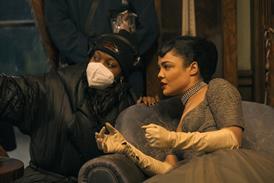Study reveals that industry could increase profitability by better understanding audiences
A UK Film Council-commissioned study, carried out by Harris Interactive, has revealed that the UK population thinks more needs to be done to accurately portray women and minorities in films.
The study surveyed 4,315 people interested in film, including older women, minority ethnic groups, lesbian/gay/bisexual audiences (LGB), and C2D social classes.
The research highlights a number of stereotypes still being perpetuated in film, with older women and minorities in particular feeling marginalised.
While the study revealed that 71% of the general public claimed film has become more authentic in its portrayal of diverse groups over the last ten years, 95% of Asian and Eastern European groups, 97% of Black African/Caribbean, and 90% of LGB groups want to see more authentic portrayals of diverse audiences in film.
Seven in ten (69%) women think that film glamorises young women and older characters - especially older women - tend to be significantly under-represented.
The study also highlights the considerable commercial opportunity to be reaped if diverse groups are represented more authentically in film. 59% of Asian, 66% of Black African/Caribbean, 54% of East European and 51% of LGB audiences say they would watch more films if they felt this was the case.
While a large proportion of older women would like to see their characters ‘sexed up’ in film, other groups were keen to see their sexuality downplayed. Four-fifths (80%) of LGB individuals felt the focus on gay characters in film concentrated too much on their sexuality, while 63% of Black African/Caribbean people (63%) felt that their characters were portrayed as overly sexual in film.
The research also touches on other negative stereotypes communicated in film, with a majority (80%) of Black African/Caribbean individuals believing they are too often characterised as drug dealers.
74% of Asian respondents believe that Asian religious culture is not reflected authentically, while 50% of the C2D social grade individuals said that that films telling stories of their lives are too often depressing.
Respondents recognised film as a powerful medium with almost seven in ten people (69%) believing film has the power to tell stories that educate people about real life events.
The study also revealed that minority groups visit the cinema more regularly than the general public with 67% of Asian and Eastern European groups, and 56% of Black African/Caribbean individuals and 55% of LGB respondents attending on a monthly basis, compared to only 31% of the general public.
Mary FitzPatrick, Head of Diversity at the UK Film Council, the key sponsor of the research, said: “Film remains one of the most popular pastimes for people in the UK and this research highlights the often overlooked views, opinions and needs of the diverse groups that make up an important part of the film industry’s audience.
Film has the ability to change behaviour and shift opinion, so we in the Industry all have a responsibility to ensure that these findings are not ignored.
The figures speak for themselves in demonstrating there is a real opportunity for the industry to more accurately portray these groups in film. This research will form an important part of the UK Film Council’s legacy and will help make a powerful and dynamic change to the way in which diverse groups are portrayed in film going forward”.
Diversity is hosting a discussion on the study’s findings at BAFTA this afternoon, hosted by Jenny Eclair.
The study is the last major contribution of Diversity, which will not continue in its current form at the BFI-UKFC merger.




















No comments yet